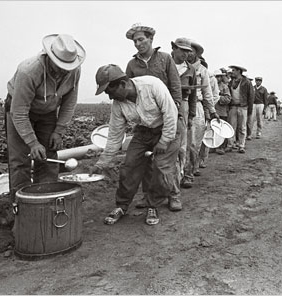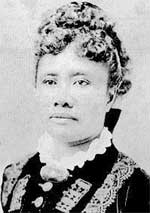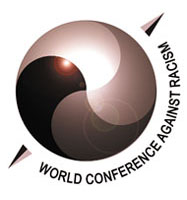Mon 15 Oct, 2012
Compensation for Mexican braceros
Comments (9) Filed under: Remedies| Tags: Braceros, Mexican-Americans, Reparations |
 Four years ago, I wrote a short blog post about a preliminary settlement in the case of Mexican braceros denied wages earned as guest workers in the U.S. in World War II.
Four years ago, I wrote a short blog post about a preliminary settlement in the case of Mexican braceros denied wages earned as guest workers in the U.S. in World War II.
Since that time, the post has attracted a steady flow of visitors searching the web for information about receiving compensation for family members who were braceros. These visitors, and the comments they’ve left asking for information, indicate just how many uncompensated braceros remain in the U.S. and Mexico, as well as the rampant confusion surrounding this case.
I have no expertise in the handling of claims for the braceros program. However, because of the number of visitors who’ve asked for information, and the fact that this exchange is buried in the comments on that page, I want to provide here a summary of what I know.
My understanding from reading newspaper and scholarly accounts is that the process for claiming compensation depends upon whether the former braceros, or any heirs, live in Mexico or in the United States.
In the case of residents of the U.S., the class action lawsuit dictated the process to be followed, and the first step was to contact the nearest Mexican consulate for information and to file a claim. For example, as of a year ago, the Mexican consulate in Yuma, Arizona was actively seeking former braceros who had filed a claim but not yet received compensation. Each claimant is apparently receiving about $3,000 U.S.
In the case of residents of Mexico, all claims are handled by the Mexican government. I believe that requires contacting a Mexican federal office for information or to pursue a claim.
If anyone has better or more recent information than this, please leave it in the comments, and I will update the main post.




